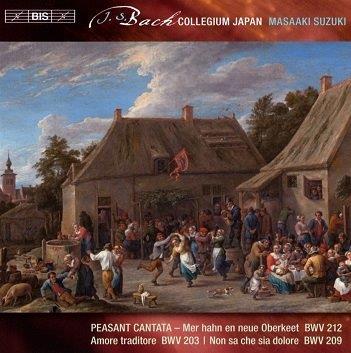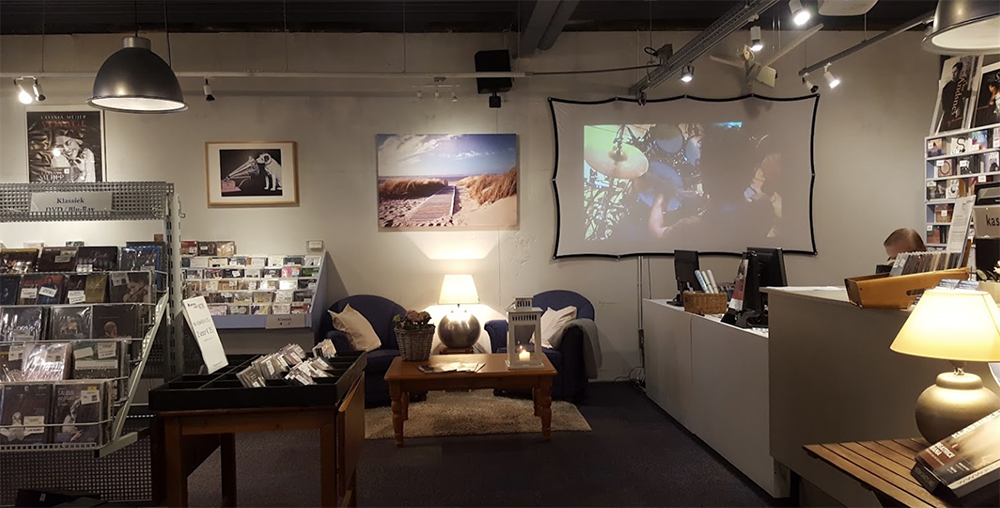U vond niet wat u zocht op deze website?
Neem dan zeker een kijkje op CDenDVD.nl: onze uitgebreidere website biedt meer dan 250.000 bestelbare artikelen aan.
- 8 Ball music (3)
- A-film (40)
- Accent (45)
- Alpha (448)
- Analekta (11)
- Aparte music (14)
- Arcana (114)
- Ariola (8)
- Arista (10)
- BBC legends (21)
- Berlin classics (16)
- BIS (1708)
- BNN vara (1)
- BR-klassik (114)
- Bridge (29)
- Brilliant classics (307)
- Buenavista (38)
- Carpe diem records (2)
- CBS records (17)
- Challenge (39)
- Chandos (216)
- Channel classics (165)
- Chateau De Versailles (90)
- CNR (17)
- Columbia (47)
- Columbia pictures (7)
- Columbia tristar (15)
- Concord records (2)
- CPO (100)
- Decca (102)
- Deutsche grammophon (170)
- DFW (94)
- Dino music (8)
- Document (1)
- Dog eat dog productions (2)
- East West records (3)
- ECM (269)
- Eigen beheer (28)
- EMI (137)
- Entertainment one (28)
- Epic (13)
- Erato (52)
- Etcetera records (309)
- Fidelio classics (2)
- Force music (2)
- Foreign media music (2)
- Fox film (41)
- Fuga libera (40)
- Gimell Records (24)
- Gingerman bread records (2)
- Glossa (108)
- Harmonia mundi (238)
- Helios (66)
- Homerun records (1)
- House of knowledge (8)
- Hyperion (744)
- Indisc (1)
- Jingo (5)
- Linn records (90)
- Maxell (2)
- MDG (73)
- Mediarange (3)
- Mercury records (27)
- Modestus (1)
- Naxos (839)
- Newton classics (74)
- Ondine (104)
- Orange Mountain Music (40)
- Orchid classics (19)
- Pan Classics (19)
- Paradiso (21)
- Paramount (21)
- Parlophone (28)
- Pentatone (275)
- PHI (36)
- Philips (33)
- Piano classics (15)
- Polydor (35)
- Ramee (32)
- RCA (42)
- RCV (77)
- Signum classics (62)
- Smekkleysa (1)
- Sony bmg (2)
- Sony classical (75)
- Sony music (141)
- Sony pictures (45)
- Studio 100 (5)
- Supraphon (45)
- Syco music (4)
- Tacet (90)
- Topaz records (1)
- Trptk (24)
- Universal music (143)
- Universal pictures (67)
- Virgin (40)
- Vivat (4)
- Warner bros (88)
- Warner music (49)
- Weton wesgram (6)
- Zefir records (4)

SECULAR Cantatas VOL. 7 (PEASANT CANTATA)
Bach Collegium Japan / Masaaki Suzuki
Componist: J.S. Bach
SACD
1 disc(s)
Vocaal / Koren
Verwachte levertijd (in NL): 1 - 3 werkdagen

| Staat: | Nieuw |
|---|---|
| Label: | BIS |
| Barcode: | 7318599921914 |
Mojca Erdmann (soprano), Dominik Wörner (bass), Kiyomi Suga (flute), Nobuaki Fukukawa (horn), Masaaki Suzuki (harpsichord) & Bach Collegium Japan, Masaaki Suzuki
Bach, J.S.:
Cantata BWV203 'Amore traditore'
Cantata BWV209 'Non sa che sia dolore' (Italian Cantata)
Cantata BWV212 'Mer hahn en neue Oberkeet' (Peasant Cantata)
The works on the seventh disc in Masaaki Suzuki's and Bach Collegium Japan's series of J.S. Bach's secular cantatas are quite special in the composer's production. By far the best-known of them, the so-called 'Peasant Cantata' signals this both through its title (in Upper Saxon dialect) and subtitle ('Cantate burlesque') – composed for a celebration at a country estate outside Leipzig, the soloists in this duo cantata portray neither Roman gods nor allegorical figures but a peasant girl and a farm-hand. In broad dialect, and to music that makes reference to folk songs and village music, the two praise the new owner of the estate and his family, but also work in sly digs at the village parson and the local tax collector. The Peasant Cantata is followed by the only two extant Bach cantatas that set Italian texts. As such, they have been regarded with a certain suspicion by Bach scholars – all the more so as no autograph manuscript has survived of either work. Both works are solo cantatas and both contain a number of surprises for the listener. The longer soprano cantata, BWV 209, is possibly a musical farewell to a young scholar and pupil of Bach’s on his departure from Leipzig after completing his degree. While the opening sinfonia, with concertante flute, sounds like pure Bach the two arias are composed in a style that is strongly influenced by Italian opera. In Amore traditore for bass solo, a disappointed lover takes Amor to task, accusing him of betrayal and deception. It closes with an aria of a quite distinct character, with the harpsichord not appearing as a continuo instrument, but instead taking on a virtuoso, concertante role with toccata-like figurations.
"Nadat het in 1990 opgerichte Bach Collegium Japan onder leiding van de innemende Masaaki Suzuki alle kerkcantates had opgenomen, ging men gewoon verder met de wereldlijke cantates. De jongste loot aan deze stam bevat Bachs bekendste wereldlijke cantate, de Boerencantate, en de twee bijzonderste. BWV 209 en BWV 203 zijn de enige cantates met een Italiaanse tekst.
Bach als mediterraan, gezien door de bril van een musicus uit het land van de Rijzende Zon."
Klassieke Zaken Magazine
"The two voices are ideally cast. Mieke (Mojca Erdmann) sings with a charming simplicity as she resists and then gives way to the advances of her rustic beau, Dominik Wörner. He sings with great character, a mischievous inner grin seeming to colour his tone and clarify his diction"
BBC Music Magazine - Christmas 2016 *****
"Suzuki gets into the swing of this burlesque immediately with deft timing, organic contrasts of bucolic temperament and a winning characterisation of the ‘base and popular’ viewed through a courtly prism. The director’s own keyboard playing adds to the intimate and rolling spontaneity, surely Bach’s most tantalising example of what opera might have afforded him."
Gramophone Magazine - October 2016






